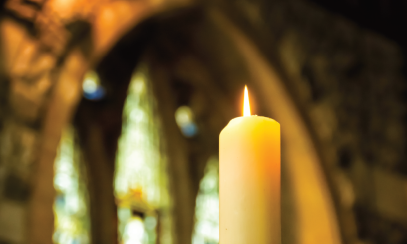What kind of pride is sinful?
Dear Fr. Joe: Why is pride a sin – what about pride in your work or family? Is there a good kind of pride? If so, what kind of pride is sinful?
Dear Fr. Joe: Why is pride a sin – what about pride in your work or family? Is there a good kind of pride? If so, what kind of pride is sinful?
Great question! I am glad someone finally asked me about pride because, frankly, I am the master of humility. I am the most humble man I know; a virtual standard for humility. So much so that I am currently working on a book called Humility and How It Made Me Great. I am sure it will be a best-seller. Then, I will write a sequel called The Three Most Humble People In the World and How I Trained the Other Two. I could keep going you know ...
Back to the question, the glossary of the Catechism of the Catholic Church describes pride as “One of the seven capital sins. Pride is undue self-esteem or self-love, which seeks attention and honor and sets oneself in competition with God.” Let’s break that down ...
In order to grow in holiness, we need to grow in self-knowledge. The Holy Father wrote about this in his book, The Acting Human, and he has spoken about it in numerous addresses. Self-knowledge is when we have a realistic view of ourselves and an idea of what our weaknesses and strengths are. We need both of these things to have a healthy concept of ourselves. Now, the opposite of that healthy self-knowledge is found in pride.
So, to figure out what is good and what is sinful, let’s look at some specific examples and see what we learn.
Okay, first, let’s say that we are good at something. If we are good at something, and we are aware that we are good at it, it is not prideful to acknowledge that fact. That is speaking the truth. St. Francis of Assisi is quoted as saying, “True humility begins with our ability to recognize our weaknesses as well as our strengths.”
On the other hand, if we know we are good at something and then say we aren’t good at it, that is lying. This is called false humility. This is when we refuse compliments and deny our goodness at certain things. We may even claim that God cannot love us and that “sets oneself in competition with God.”
If it is hard for you to take compliments, then try this: the next time people compliment you, let’s consider it a prayer. That person making the compliment is thanking God through you for the gift you manifest.
That does bring up an important point. I think one of the reasons that we all have trouble accepting compliments is that we don’t have any practice. Think about how hard it is for us to compliment and receive compliments.
I firmly believe that one of the greatest weaknesses among the Catholic family is that we are so very specific with our criticisms and so very general with our praise. I challenge myself and everyone reading this column today to take this Easter season and dedicate ourselves to studying people, looking at their lives and seeing where they are strong. We do the opposite naturally and easily – ever notice that? When we then see someone’s gifts, we must take that truth to them and honor them for it. Think of how far a very generous compliment will take you and then share that joy with someone else.
Believe it or not, this will help us all be more humble.
With all this in mind, I hope we see that it is a good thing to take pride in our work if we are good workers. It is a good thing to take pride in our family if we love and honor them and are encouraging them to be faithful to the mission of Jesus and the church.
I think that in the end, the key to a healthy balance between too much pride and false humility is to recognize where our gifts came from and be grateful to God for giving us them. Another key is to make sure and observe our brothers’ and sisters’ strengths and share them in a specific way. The final point is to then take the strengths we see in ourselves or that others have seen in us and dedicate them to working for Jesus and his bride, the church.
Dear Fr. Joe: Tell us about yourself. Why did you decide to become a priest?
Mmm ... I am 33 years old, a graduate of UM-Flint and Sacred Heart Major Seminary. I love reading, movies and Detroit Lions football. I come from a large, loving family and a small, loving church called Mt. Zion in Montrose.
On and off through my life, I felt a call to the priesthood. Sometimes I nurtured it, other times, I buried it. The idea scared me to be sure, but I have to say that the desire never went away. There were, in retrospect, four key events that eventually brought me to the seminary in August of 1993.
First, I had two long talks with a priest named Father John Bertalucci. He spoke with me and prayed with me, helping me to see not only what God wanted, but helping me find the strength to do it.
Second, at a conference in Pittsburgh a bishop named Sam Jacobs from Louisiana sat down and spoke to me in a way I have never forgotten.
Third, my family and friends supported me as best they could: prayed with me, encouraged me, challenged me, etc. This helped me not only to see what God wanted, but also to have the courage to follow through with it.
Finally, people were patient with me and forgiving. Feeling called to the priesthood can be a confusing thing, and I had difficulty locating a priest who was willing and able to help me. I found myself unable to express what I was feeling to anyone I thought would understand. As a result, I found myself frustrated and made some mistakes along the way and hurt people. People were (and are!) very merciful and supportive. What a great thing that is.
Once in the seminary, the teachers and staff were amazing. They showed me how to love the church and serve her as a priest. I met other young men (and some not so young!) who wanted to be priests also. Sacred Heart Seminary was one of God’s greatest gifts to me and I am proud to have gone there and learned all that I did.
Enjoy another day in God’s presence!



